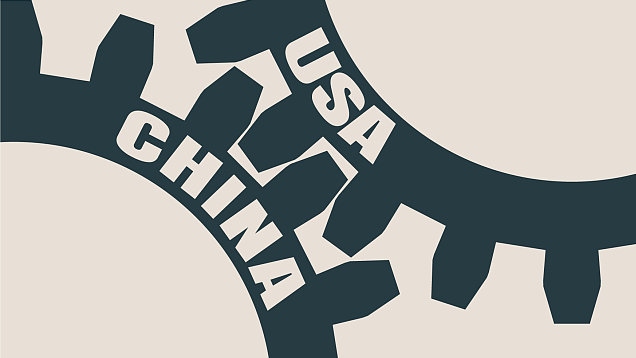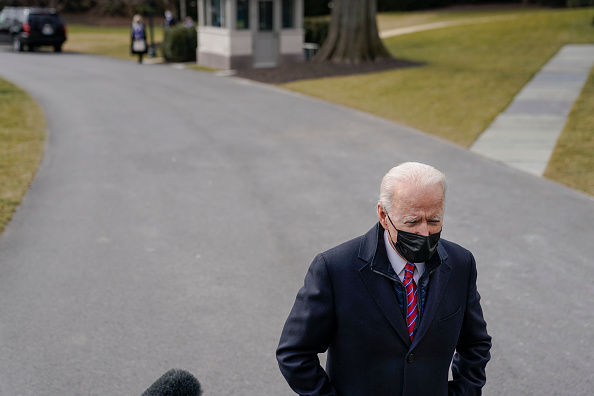
Never before has there been a greater impetus on all to cooperate more closely with one another, but the new emerging pattern of international relations will remain inherently unstable until China and the U.S. improve their ties. /VCG
Never before has there been a greater impetus on all to cooperate more closely with one another, but the new emerging pattern of international relations will remain inherently unstable until China and the U.S. improve their ties. /VCG
Editor's note: Andrew Korybko is a Moscow-based American political analyst. The article reflects the author's views and not necessarily those of CGTN.
Yang Jiechi, a member of the Political Bureau of the Central Committee of the Communist Party of China (CPC) and director of the Office of the Foreign Affairs Commission of the CPC Central Committee, gave a hugely important speech on China-U.S. relations on February 2. He was speaking with board members of the National Committee on U.S.-China Relations about proposed solutions to the countries' present impasse.
Given his influential position in the Chinese government and the premier role that he plays in formulating its foreign policy, his words should be taken very seriously by all.
Yang suggested that the U.S. must first see China as it truly is, recognizing its focus on peaceful development and mutually beneficial cooperation. The second step is to resume normal interactions, including at the Track II level. Third, there must be a proper management of differences and respect for one another's red lines, particularly no meddling in their internal affairs. Next, China and the U.S. must broaden their mutually beneficial cooperation, including by depoliticizing trade issues. Finally, Yang proposed that they enhance cooperation on the climate, military issues, cyber ones, drug control and anti-terrorism.
These are all very sensible suggestions, but perhaps the most significant of them all is the third one about respecting one another's red lines.
"The United States should stop interference in the affairs of Hong Kong, Tibet and Xinjiang, which all matter to China's sovereignty and territorial integrity, and stop attempts to hold back China's development by meddling in China's internal affairs," said the high-ranking dignitary. This is the prerequisite for improving their relations, without which no rapprochement is possible. So long as the U.S. continues to meddle, trust will remain non-existent and ties will continue to suffer.

U.S. President Joe Biden. /Getty
U.S. President Joe Biden. /Getty
For progress to be made on this front, the U.S. must finally see China as it truly is, which is what Yang first proposed. America isn't meddling in China's internal affairs for no reason, but in an attempt to destabilize it as part of the zero-sum competition that some of its strategists have convinced themselves that they're in with the people's republic.
This is driven by the false perception that they have about China's grand strategic goals, which they wrongly believe are to aggressively replace the U.S. in all respects at any cost. Accordingly, they gambled that "the best defense is a good offense," and thus tried to undermine China from within.
Only by correcting their false perceptions about China by reminding themselves of the facts instead of reacting to their paranoia, which is itself driven by the historically inevitable process of their country's gradual decline from its brief superpower status and not due to anything that China has done against them, can the decision be made to stop meddling in its affairs.
It would therefore help if they resumed normal interactions at all levels, exactly as Yang proposed. The focus on informal efforts through think tanks, universities, media and businesses, for example, can help spread wider awareness about the truth of China's rise and grand strategy.
From there, the two countries and their representatives could focus on broadening their mutually beneficial cooperation, not only in those aforementioned spheres, but on trade, the environment and much more as was earlier mentioned.
By focusing on their many commonalities and shared grand strategic goals in ensuring a stable and peaceful world order, they can finally reset their relations if the U.S. realizes how counterproductive it is for its own interests to continue meddling in China's internal affairs. Yang's multi-phase strategy for improving relations is therefore extremely pragmatic.
The Biden administration has the unique opportunity to correct the mistakes of its predecessors and take advantage of the historic moment in which humanity is living. Never before has there been a greater impetus on all to cooperate more closely with one another, but the new emerging pattern of international relations will remain inherently unstable until China and the U.S. improve their ties.
China has been ready to do this from the very beginning, so the onus is solely on Washington to reciprocate its goodwill gestures. It would be very welcome by the international community if the Biden administration seriously considered Yang's proposals.
(If you want to contribute and have specific expertise, please contact us at opinions@cgtn.com.)

